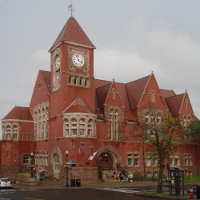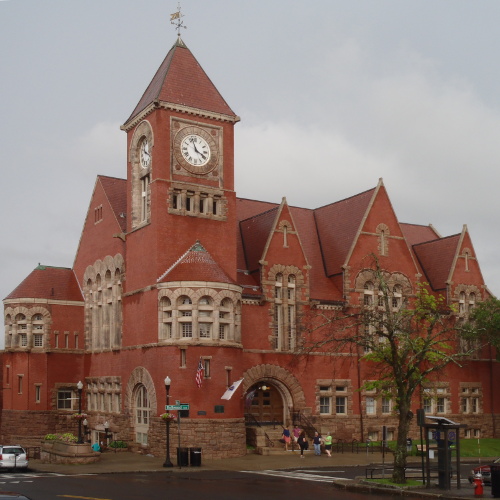• Control Spending • Seek New Revenues • Preserve Vital Services • Moving Forward, Together •

Local
Economy
Our local economy isn’t just places to buy things. It’s also where we live, work, and create experiences. Our decisions need to fully consider the complementary and competing needs of college students, recent graduates, day time workers, young families, empty nesters, and retirees.

Transparent
Governance
Creating clear, accountable, successful structures requires applying informed historical perspectives on where we have been, as well as immense attention to detail. We have to continuously tell the story of Amherst in multiple ways.

Proven
Leadership
Let’s focus community debate on the questions that matter most, and remind ourselves that the purpose of debate is to reach a decision. Amherst’s success demands the right balance of discussing and doing, listening and leading.
Local Economy
We can’t spend without having a way to pay for it, and we can’t just keep asking taxpayers to dig deeper.
We can’t keep underfunding regular maintenance of town buildings and our shared public spaces.
We need 21st century facilities for all our preK-12 students. Paying more and getting less for a dwindling school-age population is a threat to our quality of life.
Our educational institutions and protected open spaces are central to what makes Amherst special. But having so much tax-exempt property puts a heavy tax burden on our homes. State aid is not increasing. To support our great community, we need to make choices that improve our tax base.
We need to actively figure out where more people can live in Amherst. We are rightfully proud of our status as one of the few municipalities meeting the 10% affordability threshold, but we also know long-time residents struggle to stay, and new employees and young families struggle to enter.
Our Master Plan developed over a decade of work by the Comprehensive Planning Committee (including 17 - 25 voting members), thousands of resident volunteer hours, significant staff and consultant support, with financial support from Town Meeting, and in 2010 was adopted by the Planning Board per MGL Chapter 41 section 81D.
While we have made significant progress in improving the predictability of our permitting process, we also need to effectively address both existing and new business challenges, including the evolving sharing economy (transportation and temporary accommodations alternatives), lunch cart licensing, and adult use/recreational marijuana.

Transparent Governance
We need thoughtful, connected planning and spending year-round by elected officials connected to their constituents.
Knowing how we voted at the end is certainly important, and my extensive voting records are readily available on the websites for the Town and Schools, in addition to the portion available at the tool TallyVotes.org.
Understanding the developing thinking of the legislative body over time is going to be new for Amherst. Both Massachusetts Open Meeting Law and the new Charter have clearly established expectations for transparent decision making. Yet all our residents need multiple practical ways to engage with elected officials, not limited to one-sided televised public comment during one portion of a single meeting.
Understanding what kind of community engagement has worked, and where we have fallen short, is critical to moving forward, together. The new Community Participation Officer will certainly play a significant role, as we cannot depend only on announcing annual forums and district meetings where we hope people will show up. Finding ways to connect various communities of interest to the discussions and decisions they care about must be our daily challenge.
The appointed Town Manager is in charge of Amherst now, and historically free to hire who he wants, when he wants, and direct them as he sees fit. That won’t change just because the Town Manager will have to justify his department head and committee appointments in public. While the Charter provides clear deadlines, exactly how will the legislative body, the 13 member Town Council, decide whether or not to approve such appointments? Our friends in Framingham and Easthampton have struggled with their versions of this process. What public input will be considered?

Proven Leadership
Your brand new Town Council needs members who know how things work, while making things work better -- for all of us.
Change is more than hard. Having worked with six different temporary and permanent Town Managers, I bring more experience managing expectations of both elected and appointed officials than any other Town Council candidate. As Select Board Chair, working with my four dedicated colleagues and with staff support, we managed the extremely difficult grief over the sudden death of our beloved fifth permanent Town Manager, John Musante, while continuously making complex hiring decisions for the sixth, Paul Bockelman.
I’ve served our community in the following elected and appointed Town offices:
- Select Board, 2007-present, Chair 2015-2017
- Amherst & Amherst-Pelham Regional School Committees, 2002-2007
- Town Meeting, precinct 3 and precinct 1, 1999-present
- Comprehensive Planning Committee, 2002-2007, Chair 2004-2006
- Hampshire County Select Boards Association (HCSBA), Vice-President 2016-present, county designee to Massachusetts Selectmen's Association (MSA) Executive Committee 2017-present
Consider my 2007 Select Board race where during my second School Committee term I challenged two incumbents for two Select Board seats. While I’m quite obviously eleven years older, my values have not changed: Common Sense for a Common Purpose
When I received more votes than either incumbent in 2007, I joined a Select Board that may have had only one shared value: all of us voted against the 2003/2005 Charter proposal. A year later, with two more new members, we really began working together to develop a shared culture. That certainly did not mean unanimous votes. It did mean recognition that as part of the executive branch, we did not serve Amherst well with five separate ways of interacting with and evaluating the Town Manager -- we had to agree to work as a body, not as individuals. We learned to listen to each other’s conflicting views, and as we thoroughly considered each issue, often developed a clear consensus.
Of course the new Town Council is not part of the executive branch, but a legislative body with some policy influence. We need to work together to develop shared norms and new practices that meet both the words in the Charter and our residents expectations for inclusive representation.
Life is too short, and our challenges too pressing, for listening and talking that doesn’t lead anywhere. Making local government work takes discipline, hard work, and very practical problem solving.
The first obligation of local government is to focus on doing what needs to be done. This is the approach I’ve brought to all my work in our community, and it’s what you can count on if you honor me with your vote on November 6, 2018.

Join Us! Donate!
Here’s how you can help us move forward, together:
☑ Email friends and neighbors a link to this website☑ Like the Facebook campaign page
☑ Write a letter to the editor
☑ Join the supporters listed on this website
☑ Provide a quote for the supporters page on this website
☑ Host a lawn sign
☑ Make phone calls
☑ Help with mailings
☑ Remind people to vote in the preliminary election Tuesday September 4, 2018
☑ Donate to campaign expenses (see below)
Please sign up to volunteer.
More ideas? Email us at campaign@alisaforamherst.com
Donate via check
You can write a paper check (or electronic check mailed via your billpay program) made payable to "Alisa Brewer for Town Council" and mail to:
Alisa Brewer for Town Council
Clare Bertrand, Treasurer
610 Bay Road
Amherst, MA 01002-3543
Be sure to include your current mailing address, as all candidates are required to file regular campaign finance reports with the Town Clerk that include the name and address of each contributor of more than $50 in a calendar year. If you anticipate contributing $200 or more to my campaign this year, please also provide your occupation and employer.
Since there are multiple campaigns soliciting contributions for Town Council, State Representative, and State Senator this year, here is a quick summary of the rules:
an individual at least age 18 may contribute up to an aggregate of $1,000 (monetary or in-kind contributions, or a combination of both) to each candidate’s committee in a calendar year, but there are aggregation limits to each of those contributions depending on the form of payment: cash $50; money orders $100; personal checks or personal credit card $1,000. If an individual gives $200 or more in a calendar year to a candidate’s committee, that committee must also ask once (at the time of solicitation and, if necessary, in one written follow-up request) for the contributor‘s occupation and employer.
Donate via personal credit card at Paypal
Note: A political committee may not process a credit card transaction made via the Internet if the required acknowledgment and contributor information is not provided contemporaneously with the contribution. Click "I AGREE" to affirm:
- I am at least eighteen years old.
- This contribution is made from my own funds, and funds are not being provided to me by another person or entity for the purpose of making this contribution.
- I am a U.S. citizen or lawfully admitted permanent resident (i.e., green card holder).
- I am making this contribution with my own personal credit card and not with a corporate or business credit card or a card issued to another person.




